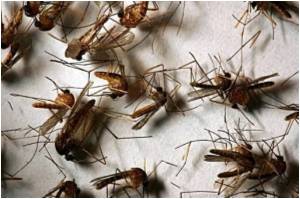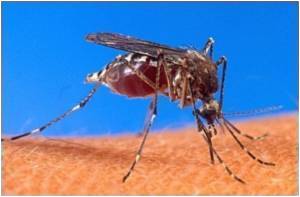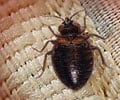Citronellal and DEET make effective insect repellents because of the way the molecular makeup of the insect is structured, reveals a new study.

"DEET has low potency and is not as long-lasting as desired, so finding the molecules in insects that detect repellents opens the door to identifying more effective repellents for combating insect-borne disease," said Craig Montell.
Scientists have long known that insects could smell DEET, Montell noted, but the new study showing taste molecules also are involved has suggested that the repellant deters biting and feeding because it activates taste cells that are present on the insect's tongue, legs and wing margins.
"When a mosquito lands, it tastes your skin with its gustatory receptors, before it bites," Montell explained. "We think that one of the reasons DEET is relatively effective is that it causes avoidance responses not only through the sense of smell but also through the sense of taste. That's pretty important because even if a mosquito lands on you, there's a chance it won't bite."
The team filled feeding plates with high and low concentrations of color-coded sugar water (red and blue dyes added to the sugar), allowing the flies to feed at will and taking note of what they ate by the color of their stomachs: red, blue or purple (a combination of red and blue).
Wild-type (normal) flies preferred the more sugary water to the less sugary water in the absence of DEET. When various concentrations of DEET were mixed in with the more sugary water, the flies preferred the less sugary water, almost always avoiding the DEET-laced sugar water.
Advertisement
"We found that the insects were exquisitely sensitive to even tiny concentrations of DEET through the sense of taste," Montell reported. "Levels of DEET as low as five hundredths of a percent reduced feeding behavior."
Advertisement
The team tested flies with mutated versions of 11 different insect TRP channels. The responses of 10 were indistinguishable from wild-type flies. However, the repellent reaction to citronellal was reduced greatly in flies lacking TRPA1. Loss of either Or83b or TRPA1 resulted in avoidance of citronellal vapor.
The team then "mosquito-ized" the fruit flies by putting into them the gene that makes the mosquito TRP channel (TRPA1) and found that the mosquito TRPA1 substituted for the fly TRPA1.
The findings were published in the Neuron and Current Biology.
Source-ANI










